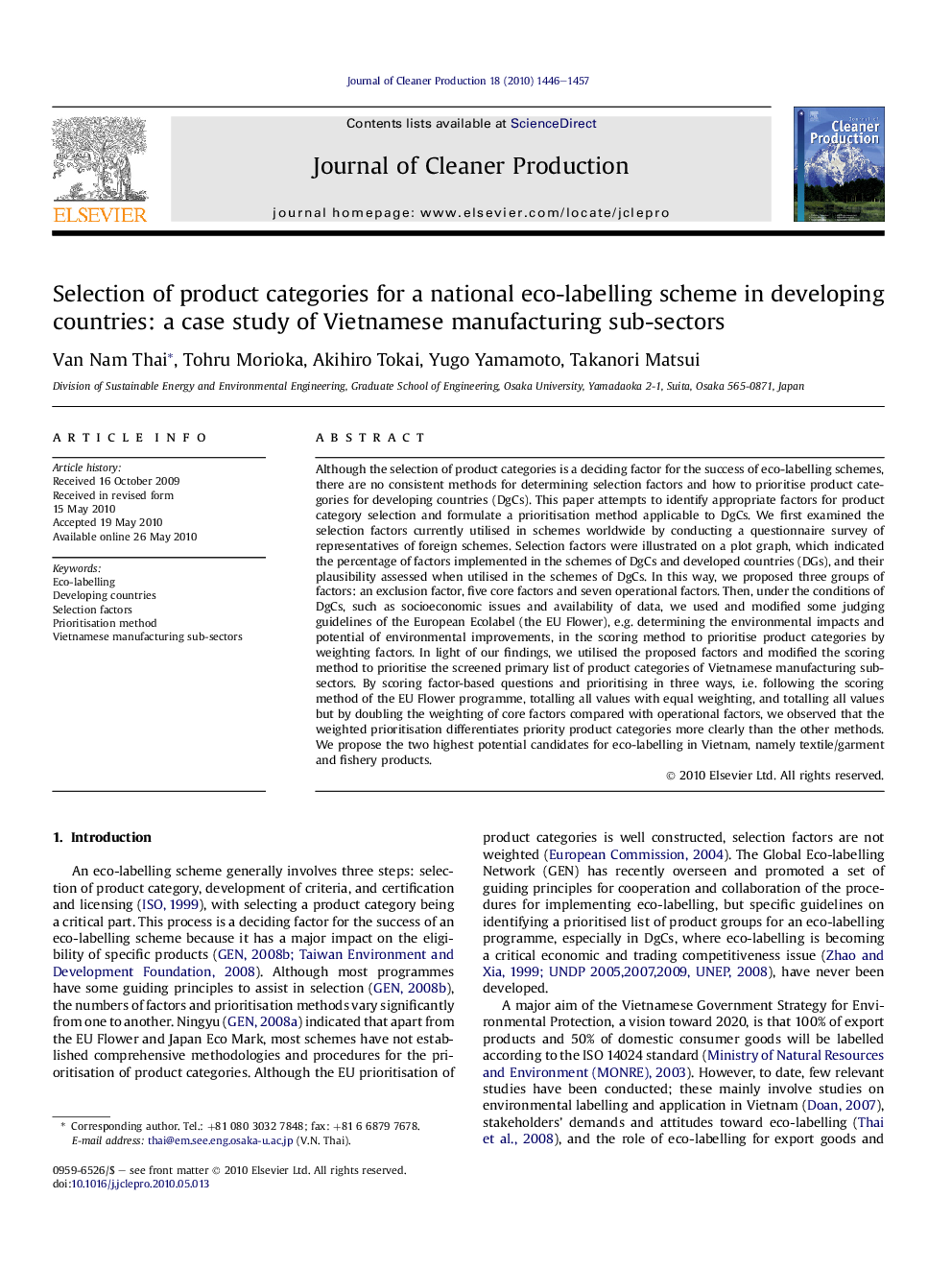| Article ID | Journal | Published Year | Pages | File Type |
|---|---|---|---|---|
| 1746500 | Journal of Cleaner Production | 2010 | 12 Pages |
Although the selection of product categories is a deciding factor for the success of eco-labelling schemes, there are no consistent methods for determining selection factors and how to prioritise product categories for developing countries (DgCs). This paper attempts to identify appropriate factors for product category selection and formulate a prioritisation method applicable to DgCs. We first examined the selection factors currently utilised in schemes worldwide by conducting a questionnaire survey of representatives of foreign schemes. Selection factors were illustrated on a plot graph, which indicated the percentage of factors implemented in the schemes of DgCs and developed countries (DGs), and their plausibility assessed when utilised in the schemes of DgCs. In this way, we proposed three groups of factors: an exclusion factor, five core factors and seven operational factors. Then, under the conditions of DgCs, such as socioeconomic issues and availability of data, we used and modified some judging guidelines of the European Ecolabel (the EU Flower), e.g. determining the environmental impacts and potential of environmental improvements, in the scoring method to prioritise product categories by weighting factors. In light of our findings, we utilised the proposed factors and modified the scoring method to prioritise the screened primary list of product categories of Vietnamese manufacturing sub-sectors. By scoring factor-based questions and prioritising in three ways, i.e. following the scoring method of the EU Flower programme, totalling all values with equal weighting, and totalling all values but by doubling the weighting of core factors compared with operational factors, we observed that the weighted prioritisation differentiates priority product categories more clearly than the other methods. We propose the two highest potential candidates for eco-labelling in Vietnam, namely textile/garment and fishery products.
